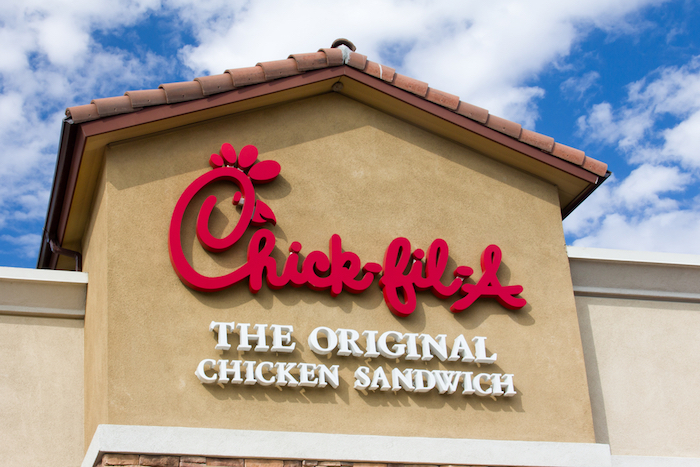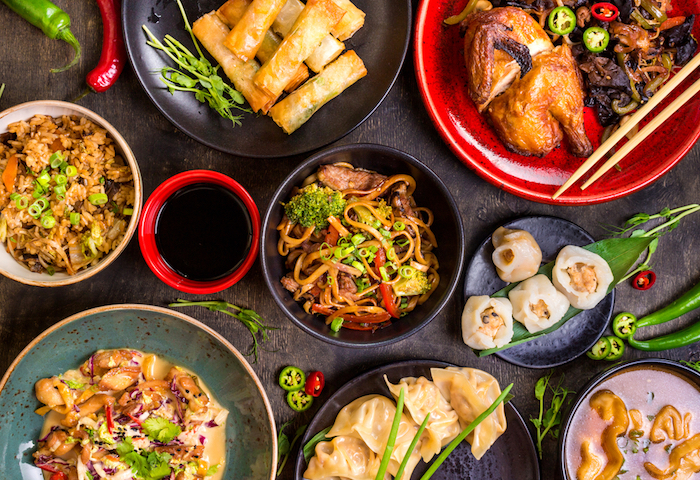The popular fried chicken chain Chick-Fil-A is in hot water this week after somebody read the ingredients list and learned that the tasty breading contains, horror of horrors, monosodium glutamate. (That’s MSG.)
Chick-fil-a using msg on their chicken sandwiches straight up puts their food at the bottom tier of the fast food chain
— ʙᴇᴀʀᴅᴇᴅ ɪɴᴅɪᴠɪᴅᴜᴀʟ (@itmeJRC) June 10, 2019
Chick-fil-A uses MSG. 🤮
— 🚀🌟Donna Starry Eyed Noble 🚀🌟 (@StarryEyed48) June 4, 2019
See if you can get @ChickfilA to stop using #MSG in their food. I can’t eat there until this poison is removed.
— Potato65 (@Potato6512) June 11, 2019
Popular wisdom has claimed for years that the secret to Chick-Fil-A’s recipe is brining the chicken in pickle juice, or perhaps frying it in peanut oil, and now people are horrified that they’ve been eating MSG all these years.
Dozens of articles have been published on the revelation (Delish’s headline “Um, Chick-Fil-A Uses MSG In Its Food And It Might Be Why You’re So Obsessed” has been syndicated on Yahoo! and multiple other outlets) and Chick-Fil-A is reportedly “researching the removal of MSG.” Because after all, isn’t MSG bad for you?

Isn’t MSG Bad for You?
No! Unless you’re allergic to it, there’s no good evidence that it’s something you should avoid.
For starters, it’s not just found in products of the Chick-Fil-A corporation. It’s in KFC, Doritos, most salty flavored snacks, and glutamate occurs naturally in a lot of foods, like mushrooms. Monosodium glutamate is the combination of a sodium ion and a glutamate ion.
It was discovered by a Japanese biochemist in the early twentieth century who extracted it from wheat and defatted soybean. People started getting concerned about it in 1968 when Chinese-American physician Robert Ho Man Kwok had a letter published in the New England Journal of Medicine complaining that Chinese food gave him feelings of numbness and tingling. He called it Chinese Restaurant Syndrome and his letter prompted dozens of others to write in with similar complaints.
Studies ensued that linked MSG to some kind of reaction — nausea, headaches, general feelings of discomfort — but they weren’t randomized controlled trials, it was found that results weren’t reproducible, and many involved consuming several grams of pure MSG, which has a different effect to consuming it in a meal. When you eat it with food, very little glutamate winds up in the bloodstream, and it’s glutamate in the blood that has more links with “Chinese Restaurant Syndrome.”
Later on, short- and long-term studies found that when taken with food, MSG didn’t reliably cause headaches nor did they increase the amount of calories eaten.(1)(2)(3)(4)(5)(6)

The Takeaway
MSG is a source of sodium. Too much sodium can produce headaches and malaise, but so can too little. Balance your sodium intake with your requirements and it’s unlikely that MSG will produce effects. But if you have an allergy to it or if you consistently feel crummy after consuming it, then of course it’s worth avoiding it.
But demonizing food purely because it contains MSG, especially if it’s a food you enjoy eating and don’t experience side effects from, doesn’t make a lot of sense.
Editor’s note: The content on BarBend is meant to be informative in nature, but it shouldn’t take the place of advice and/or supervision from a medical professional. The opinions and articles on this site are not intended for use as diagnosis, prevention, and/or treatment of health problems. Speak with your physician if you have any concerns or before beginning any new dietary regimen.
Editor’s note: This article is an op-ed. The views expressed herein and in the video are the author’s and don’t necessarily reflect the views of BarBend. Claims, assertions, opinions, and quotes have been sourced exclusively by the author.
Featured image via Elena Eryomenko/Shutterstock
References
1. Prawirohardjono W, et al. The administration to Indonesians of monosodium L-glutamate in Indonesian foods: an assessment of adverse reactions in a randomized double-blind, crossover, placebo-controlled study. J Nutr. 2000 Apr;130(4S Suppl):1074S-6S.
2. Tarasoff L, et al. Monosodium L-glutamate: a double-blind study and review. Food Chem Toxicol. 1993 Dec;31(12):1019-35.
3. Tanphaichitr V, et al. Postprandial responses to Thai foods with and without added monosodium L-glutamate [Chinese Restaurant Syndrome (CRS)]. 1983.
4. Rogers PJ, et al. Umami and appetite: effects of monosodium glutamate on hunger and food intake in human subjects. Physiol Behav. 1990 Dec;48(6):801-4.
5. Carter BE, et al. Supplementing chicken broth with monosodium glutamate reduces hunger and desire to snack but does not affect energy intake in women. Br J Nutr. 2011 Nov;106(9):1441-8.
6. Anderson GH, et al. Acute effects of monosodium glutamate addition to whey protein on appetite, food intake, blood glucose, insulin and gut hormones in healthy young men. Appetite. 2018 Jan 1;120:92-99.